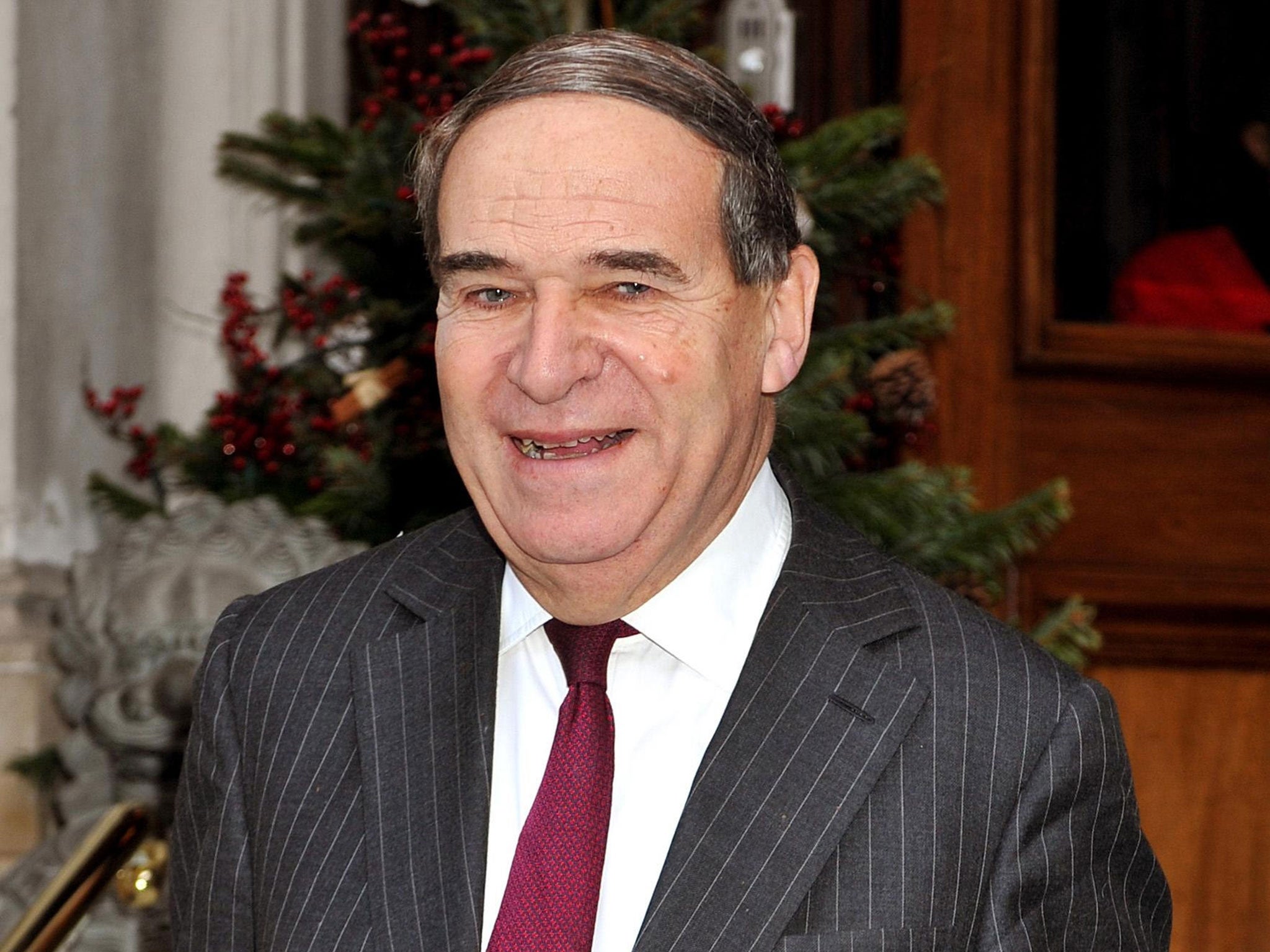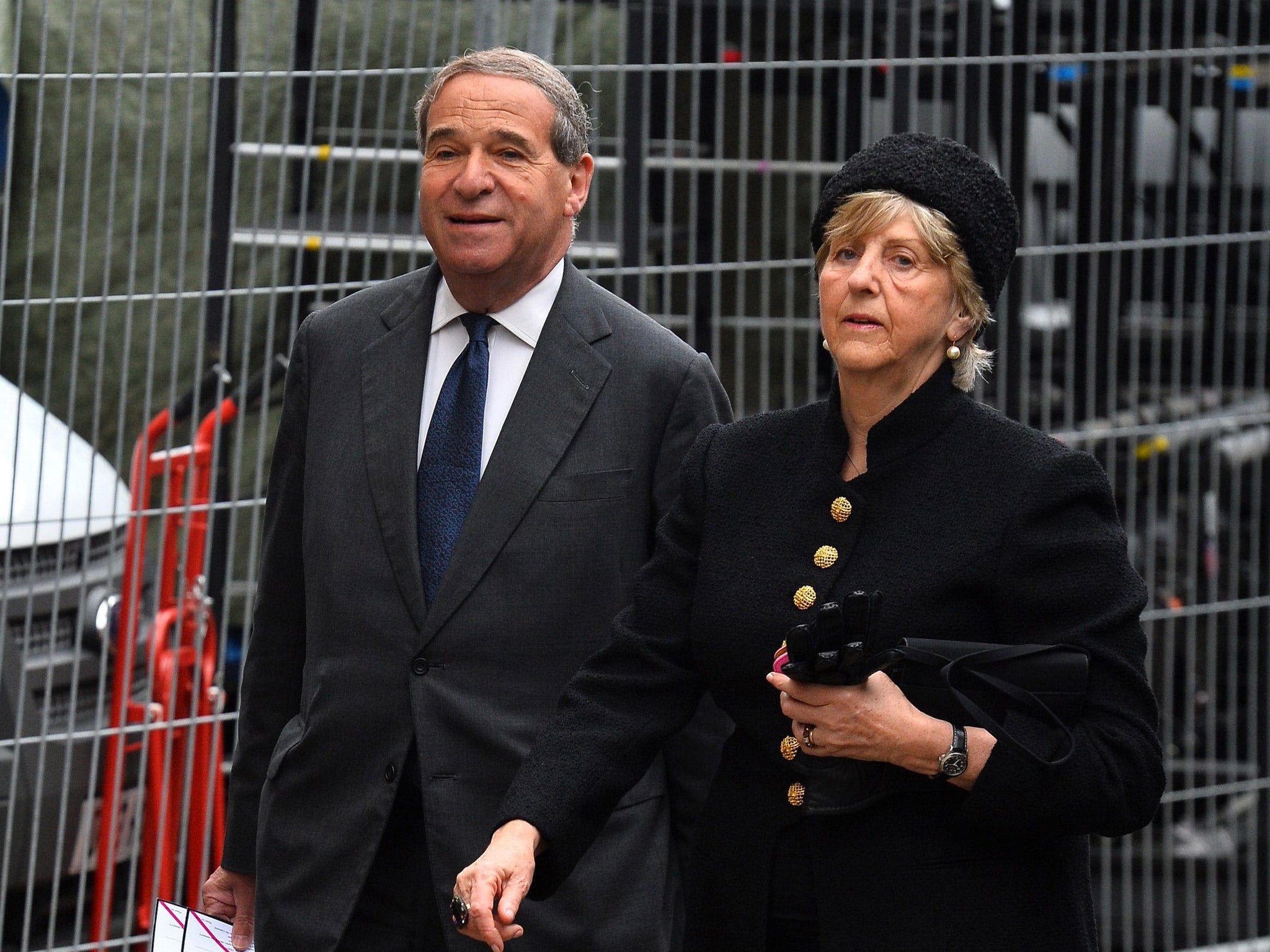Lord Brittan issues statement on alleged Westminster paedophile ring
Former Home Secretary insists he investigated dossier handed to him in the 80s

Your support helps us to tell the story
From reproductive rights to climate change to Big Tech, The Independent is on the ground when the story is developing. Whether it's investigating the financials of Elon Musk's pro-Trump PAC or producing our latest documentary, 'The A Word', which shines a light on the American women fighting for reproductive rights, we know how important it is to parse out the facts from the messaging.
At such a critical moment in US history, we need reporters on the ground. Your donation allows us to keep sending journalists to speak to both sides of the story.
The Independent is trusted by Americans across the entire political spectrum. And unlike many other quality news outlets, we choose not to lock Americans out of our reporting and analysis with paywalls. We believe quality journalism should be available to everyone, paid for by those who can afford it.
Your support makes all the difference.The former Home Secretary Leon Brittan has said he was handed a dossier containing allegations of a predatory paedophile network operating in and around Westminster despite stating in 2013 that he had “no recollection” of the existence of such papers.
The veteran Conservative Cabinet Minister said he asked his Home Officials officials to “look carefully” at a dossier handed to him in the 1980s.
In a statement released through his lawyer, Lord Brittan said he did “not recall being contacted further about these matters”.
However, in March last year, when The Independent asked the former Home Secretary about the dossier and what action, if any, he took, Lord Brittan replied by email: “I have no recollection of these matters. Sorry!”
The Tory peer was moved to clarify his position after campaigning Labour MP Simon Danczuk yesterday told Parliament that Lord Brittan had been sent a dossier of allegations about paedophiles between 1983 and 1985.
The Rochdale MP, who recently published a book alleging a massive 40-year cover-up of paedophile offences committed by Liberal MP Sir Cyril Smith, told the home affairs select committee that he believed politics was the “last refuge of child sex abuse deniers”.
Mr Danczuk repeated his call for a Hillsborough-style inquiry into historical paedophile allegations.
He told the Commons home affairs select committee that he believed a series of home secretaries had questions to answer over what they had heard about allegations of paedophilia in high places.
Mr Danczuk said the late Tory MP Geoffrey Dickens had written to Lord Brittan, Home Secretary from 1983 to 1985, about paedophiles "operating and networking within and around Westminster".
“I do think it would be helpful for Sir Leon Brittan to share his knowledge of how he dealt with these allegations that were made at the time,” said Mr Danczuk.
“I think that politics is the last refuge of child sex abuse deniers. Other institutions, the police, have dealt with this and changed their culture.”
But politics suffered from “a continual view that we should sweep it under the carpet, that we shouldn't speak about it, that we shouldn't name people, that there shouldn't be a discussion about what's gone on”.

Mr Danczuk said that he feared some politicians held a desire to suppress evidence of child sex abuse, saying he had come under unspecified pressure not to name names.
It also emerged that Mr Dickens’ home was burgled twice in “very professional intrusions” around the time he took the dossier to the authorities. Mr Dickens’ son Barry said nothing was taken in the 1983 break-ins, leading to suspicions they may have been related to his attempt to expose alleged abuse.
In his statement, Lord Brittan said: “During my time as Home Secretary (1983 to 1985), Geoff Dickens MP arranged to see me at the Home Office. I invariably agreed to see any MP who requested a meeting with me.
“As I recall, he came to my room at the Home Office with a substantial bundle of papers. As is normal practice, my Private Secretary would have been present at the meeting.
“I told Mr Dickens that I would ensure that the papers were looked at carefully by the Home Office and acted on as necessary.
“Following the meeting, I asked my officials to look carefully at the material contained in the papers provided and report back to me if they considered that any action needed to be taken by the Home Office.
“In addition I asked my officials to consider a referral to another Government Department, such as the Attorney General's Department, if that was appropriate.
“This was the normal procedure for handling material presented to the Home Secretary. I do not recall being contacted further about these matters by Home Office officials or by Mr Dickens or by anyone else.”
Lord Brittan, 74, was ennobled in 2000 and remains at the heart of the British Establishment. He was Home Secretary for two years in the 80s where he oversaw the controversial police response to the Miners’ Strike.
Beyond his work at the Home Office, he also served as Chief Secretary to the Treasury and Trade and Industry Secretary under Margaret Thatcher. After he left the Commons, he worked at the European Commission, eventually becoming its vice-president.
Lord Brittan’s achievements as a barrister led him to be made a Queen’s Counsel in 1978 and his cousin is former Conservative Foreign Secretary Malcolm Rifkind, a notable cheerleader for the intelligence agencies in the recent debate over mass surveillance triggered by the leaks from whistleblower Edward Snowden.
The Dickens dossier: How Brittan changed his story
March 2013 The Independent asked Lord Brittan about the “Dickens dossier”. He emailed: “I have no recollection of these matters. Sorry!”
July 2, 2014, 10am “During my time as Home Secretary (1983 to 1985), Geoff Dickens MP arranged to see me at the Home Office.
“Following the meeting, I asked my officials to look carefully at the material contained in the papers provided and report back to me if they considered that any action needed to be taken by the Home Office.
“In addition I asked my officials to consider a referral to another Government department, such as the Attorney General’s department, if that was appropriate.
“I do not recall being contacted further about these matters by Home Office officials or by Mr Dickens or by anyone else.”
July 2, 2014, noon He was forced to clarify his position after he was told about the Home Office review.
Second statement “Whilst I could not recall what action was taken thirty years ago, the information contained in this [Home Office] report shows that appropriate action and follow-up happened.”
Join our commenting forum
Join thought-provoking conversations, follow other Independent readers and see their replies
Comments